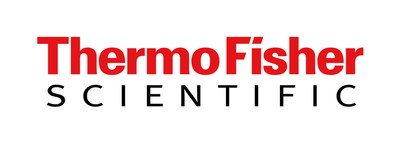
India Media Room
CARLSBAD, Calif., July 19, 2021 /PRNewswire/ -- Thermo Fisher Scientific today announced a new suite of Ion Torrent Oncomine immune repertoire assays designed to detect potentially malignant clones of T-cells and B-cells, which play a key role in the immune response system*. Using proprietary Ion AmpliSeq technology, the new pan-clonality assays target multiple parts of the B- and T-cell immune receptors using a single reaction with ultra-high sensitivity, thereby increasing the probability of malignant clone detection and decreasing the time to results.
Detection of distinct receptor DNA sequences can inform diagnostic, prognostic and therapy development studies in the progression of lymphoid cancers including leukemias, lymphomas and diseases such as multiple myeloma. Using next-generation sequencing (NGS) technology, detection sensitivity can be increased compared to traditional testing methods such as flow cytometry or qPCR.
"Every three minutes, one person in the U.S. is diagnosed with a blood cancer. Genomic testing can make a significant impact on researching and understanding these cancers – but we need to bring more testing to in-house laboratories where results can be made available quickly to healthcare professionals," said Garret Hampton, president of clinical next-generation sequencing at Thermo Fisher Scientific. "The new Oncomine immune repertoire assays unlock the power of NGS to help researchers rapidly obtain a tremendous amount of insight about a lymphoid cancer sample, including its prevalence and an understanding of how it is evolving."
One of the challenges of current NGS-based immune repertoire analysis has been the need to run multiple secondary tests due to the high test-failure rates of a typical single NGS assay. The new Oncomine pan-clonality assays overcome this challenge by uniquely targeting multiple parts of the receptor to reduce the need for secondary tests and increase the probability that a single assay can detect a potentially malignant clone.
"With the ability to sequence multiple targets in a single reaction, our team can now get much more information from one assay when compared to single-target NGS tests," said Dr. John DeCoteau, medical director, University of Saskatchewan, Advanced Diagnostic Research Laboratory. "Using the Oncomine BCR Pan-Clonality Assay, we were able to achieve a positive clonality detection rate of 93 percent in a cohort of multiple myeloma samples, without the need for secondary testing. That provides a remarkable improvement for laboratory efficiency and allows us to get results faster."
Thermo Fisher's new suite of immune repertoire assays are available on the Ion GeneStudio S5 System and feature integrated analysis and data visualization tools that simplify the interpretation of results for laboratories and healthcare professionals.
For more information on these assays, please visit oncomine.com/clonality.
*For Research Use Only. Not for use in diagnostic procedures.
About Thermo Fisher Scientific
Thermo Fisher Scientific Inc. is the world leader in serving science, with annual revenue exceeding $30 billion. Our Mission is to enable our customers to make the world healthier, cleaner and safer. Whether our customers are accelerating life sciences research, solving complex analytical challenges, improving patient diagnostics and therapies or increasing productivity in their laboratories, we are here to support them. Our global team of more than 80,000 colleagues delivers an unrivaled combination of innovative technologies, purchasing convenience and pharmaceutical services through our industry-leading brands, including Thermo Scientific, Applied Biosystems, Invitrogen, Fisher Scientific, Unity Lab Services and Patheon. For more information, please visit www.thermofisher.com.
Media Contact Information:
Mauricio Minotta
Phone: 760-805-5266
Email: mauricio.minotta@thermofisher.com
Jessika Parry
Phone: 419-266-4016
Email: jparry@greenough.biz
SOURCE Thermo Fisher Scientific


